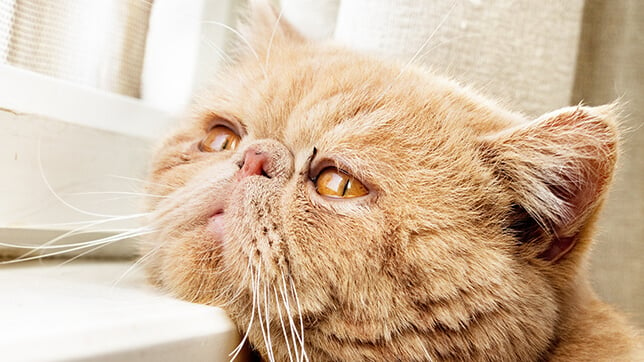3rd October 2024
When is the right time to say goodbye to your pet?
Saying goodbye to your beloved dog, cat, or horse is so heartbreaking that it’s upsetting to think about. Sadly, however, when we welcome animals into our families, there’s inevitably a time that we’ll have to consider what to do next, in the best interests of their wellbeing.
It can be hard to know whether it’s the right time to say goodbye on behalf of our pets, since each situation is unique with lots of influencing factors. So, since many of us, here at Animal Friends, have previously lost much-loved dogs, cats, and horses, we hope our advice will support you through such a difficult decision…
Our resident vet, and Head of Veterinary Services, has approved this guide to ensure we provide an honest and helpful source of knowledge for our readers.
Consider your pet’s quality of life
One of the major considerations as their last chapter approaches is the quality of life experienced by your dog, cat, or horse.
Certain illnesses and conditions have a negative impact on your pet’s ability to enjoy the things they used to, like playing fetch, jumping onto furniture, or going for walks.
Here are some of the signs your dog or cat’s quality of life may be declining:
- The inability to run, jump, or play is making them miserable.
- They’re hiding away or refusing to interact with you or others.
- Lack of enthusiasm for things they used to find exciting, e.g. feeding time.
- Persistent episodes of vomiting and/or diarrhoea.
- Changes to toileting habits, e.g. peeing somewhere they normally wouldn’t.

Monitor your horse for signs they’re no longer enjoying a good quality of life, and keep an eye out for:
- An inability to graze or forage comfortably.
- Digestive difficulties, e.g. repeated episodes of colic, diarrhoea, etc.
- Lack of enthusiasm for things they used to find exciting, e.g. feeding time.
If you feel your dog’s, cat’s, or horse’s quality of life has deteriorated, please speak to your vet for advice.
Monitor them for signs they might be in pain
Pain plays a significant role in your pet’s quality of life, since being in pain will prevent them from living life to the full.
Each dog, cat, or horse who suffers pain will act differently, though there are certain behaviours that tend to signal an animal is in pain, as follows:
Signs of pain in dogs and cats
- Restlessness, e.g. inability to get comfortable.
- Difficulty getting up or lying down.
- Refusal to eat or drink.
- Not wanting to be touched.
- Wanting to be alone.
- Crying or yelping.
- Excessive panting.
- Shaking or trembling.
- Licking or chewing painful spots.
Signs of pain in horses
- Refusal to eat or drink.
- Reluctance to move, e.g. discomfort while walking, trotting, and/or cantering.
- Inability to perform natural behaviours comfortably, e.g. rolling, getting up after lying down, grazing, etc.
- Changes to their demeanour, e.g. suddenly becoming aggressive while being groomed.
- Wanting to be alone, e.g. hiding in the corner of their stable with their head down or refusing to interact with other horses in the field.
Determine how happy they are
You’ll know your dog, cat, or horse best and will likely recognise any signs that they’re unhappy. However, it’s helpful to be aware of the ways an animal might let you know they’re no longer enjoying life, including:
- They’ve stopped being interested in anything happening around them.
- Their coat looks dull and unhealthy – no longer shiny and vibrant.
- They don’t seem to know what’s going on, e.g. confusion or disorientation.
At the point there are no further veterinary treatments or changes you’re able to fulfil (e.g. to their environment or diet), you may need to make that difficult decision.
We understand how heartbreaking it is to have to make the decision to put your family’s dog, cat, or horse to sleep. For further advice, you can read our articles on deciding whether to stay with your pet while they’re put to sleep and what to expect during a euthanasia appointment.
For support through every stage of the grieving process, you can reach out to:
- Blue Cross Pet Loss Support Service.
- Cats Protection Paws to Listen.
- British Horse Society (BHS) Friends at the End.
To access a range of free resources, please visit our Pet Bereavement Hub.
